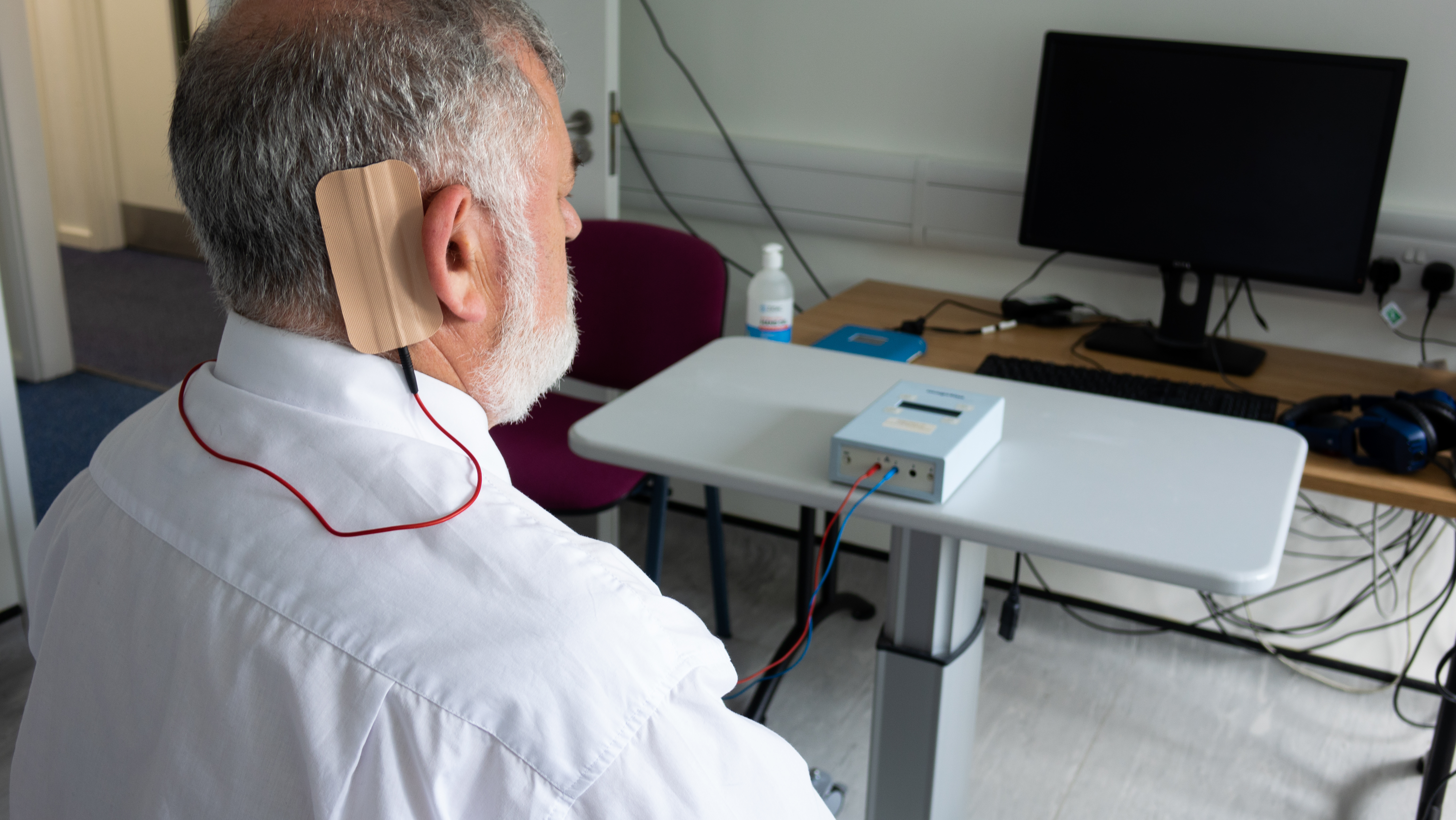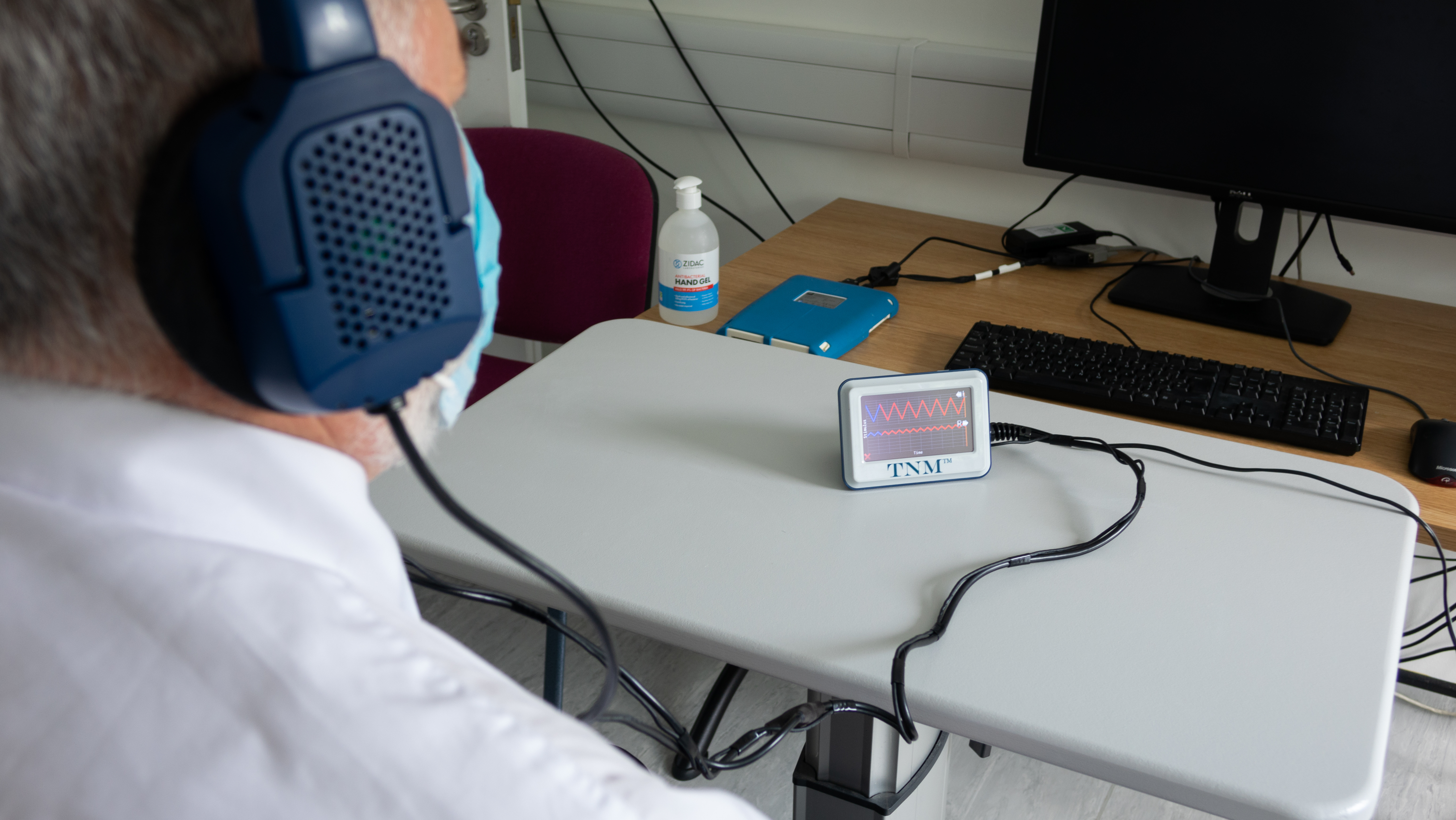We are looking for volunteers to be subjects in a research project about to start at the Parkinson’s Centre for Integrated Therapy using a technique called non-invasive brain stimulation which involves making electrical or magnetically driven changes in electric fields in the brain at very low power levels. This can be done safely and painlessly by accessing the vestibular and vagus nerves using external electrodes placed in the opening of the ear or on the bony area behind the ear.
We already know from earlier research that this kind of stimulation has an excellent safety record and can achieve improvements in symptoms after stroke, Parkinson’s disease and other brain diseases. The precise mechanism behind any improvement is unknown but is likely to include stimulating brain connectivity in damaged networks, neurotransmitter release or reducing inflammation. This study will seek to identify ways in which the benefits of stimulation can be increased for people living with Parkinson’s disease. We want to recruit subjects who have Parkinson’s disease and who in addition meet the
following research eligibility criteria:
- Are over 18 years old
- Have good ear health
- Have no skin abrasions or lesions behind the ears
- Have no metallic objects (such as shrapnel, surgical clips or fragments from welding or metalwork) in the head or electronic implants in the body (such as a pacemaker, or a deep brain stimulation (DBS)) device alrady fitted
- Have no previous history of other neurological diseases (e.g., stroke, epilepsy, brain tumour, etc.)
- Are not pregnant
- Are not receiving apomorphine or dopamine infusion therapy.
Volunteers will need to attend PCIT on two separate days to take part in the Study. About 2- 3 hours total time commitment is required. Subjects will undergo galvanic vestibular stimulation and / or trans-auricular vagus nerve stimulation . The Study will begin in October 2023 and run until December 2023. Further information can be obtained from Dr Mayur Bodani, who is the Study Lead (mb719@kent.ac.uk) or by emailing vicki@drbodani.com.


